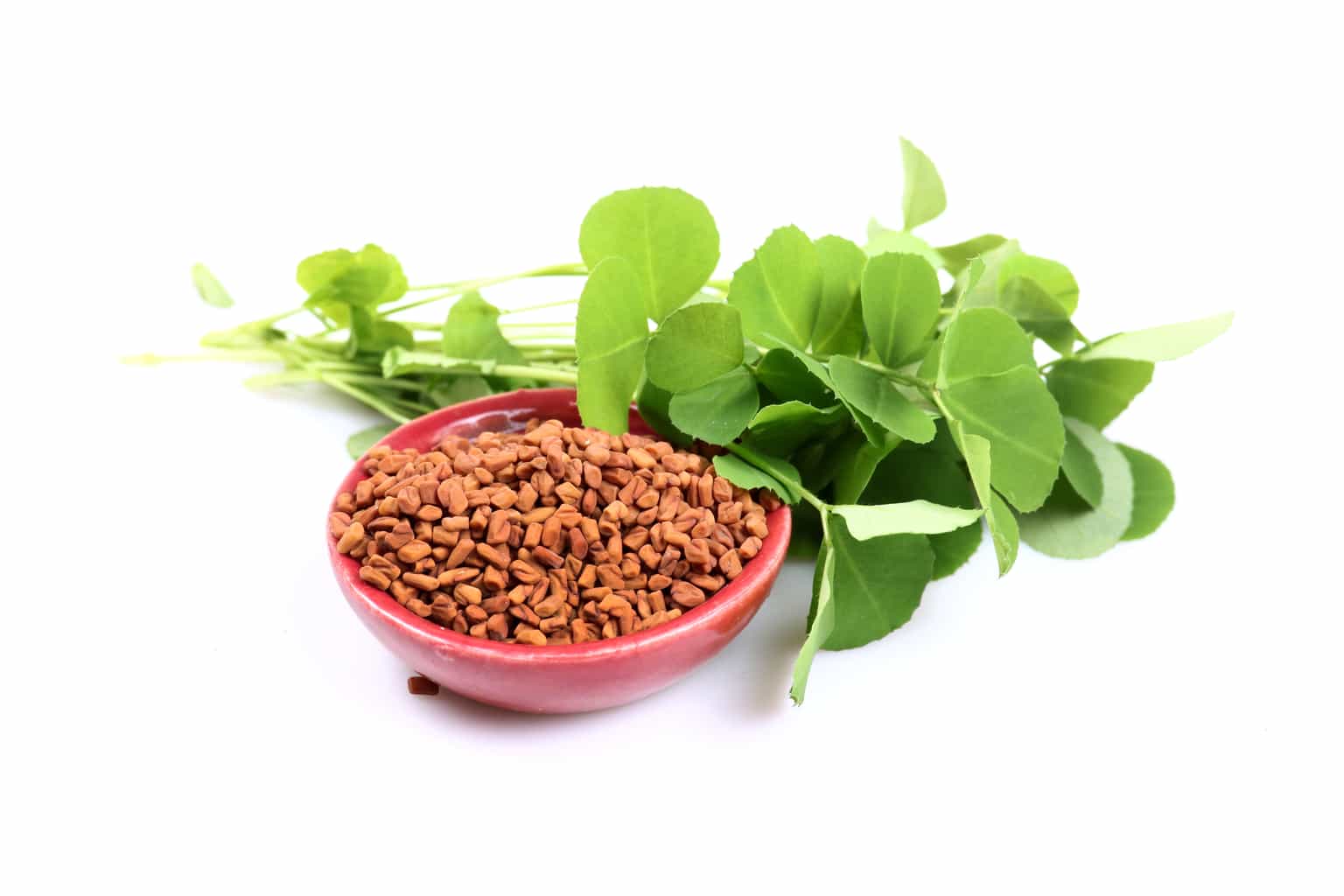
[cmamad id=”9655″ align=”center” tabid=”display-desktop” mobid=”display-desktop” stg=””]
When it comes to increasing testosterone and libido, there are a lot of questionable herbal supplements out there.
Many of these supplements don’t seem to do anything.
A couple may be beneficial.
And some can actually be harmful.
Right now, we’re going to look at fenugreek.
Fenugreek is a plant that is a spice traditionally used in cooking.
It can frequently be found in Indian Curries.
Some traditional medicines also use fenugreek.
Over time, it found its way into the supplement market.
And several testosterone boosters contain fenugreek.
But does this herb do anything to boost testosterone?
Several studies investigated this idea.

In this study, they took two groups of men.
[cmamad id=”9656″ align=”center” tabid=”display-desktop” mobid=”display-desktop” stg=””]
All of these men were familiar with weight training.
The researchers split the men into two groups.
Both groups did weight training four days a week for eight weeks.
One group received fenugreek as a supplement.
The other group received a placebo.
Then, researchers measured blood levels of certain hormones.
At the conclusion of the study, there were no significant changes induced by fenugreek for most of the hormones measured.
Levels of testosterone, estrogen, cortisol, insulin, and leptin remained much the same in both groups.
This is probably why the study title even claims that fenugreek has “No Effect on the Hormonal Profile.”
But there did appear to be a difference in one androgenic hormone — DHT.
A significant interaction between groups for DHT was observed for placebo (PRE: 1187±482; POST: 1258±493 pg/ml) and Fenugreek (PRE: 1263±496; POST: 1144±447 pg/ml) indicating that supplementation resulted in significant decrease in DHT levels.
If you’ve been reading this newsletter, you know that DHT is a powerful androgenic hormone.
It is not a hormone you want to lower — especially if you are looking to build better muscles, or improve libido.
So, if you’re trying to improve libido, you don’t want to deal with fenugreek side effects such as a LOWER libido.
Beyond this study, there are some indications that fenugreek could even be harmful.

In this study, they tested fenugreek on a group of rats.
Sometimes, rat studies can hint at the long term effects of a supplement.
Compounds affect smaller animals such as rats quicker.
And the results were not good for fenugreek.
The rats that received the fenugreek had a dramatic drop in sperm count.
The drop was so dramatic that the researchers classified the rats as “totally infertile.”
In addition, the rat’s testis also shrunk dramatically.
Fenugreek effectively castrated these rats.

So what do these studies mean?
The best case scenario is that fenugreek will not affect you.
But, it may negatively impact your anabolic hormones like DHT.
The worst case is that long term consumption could lead to becoming sterile.
Bottom line?
Do not use fenugreek as a supplement, and be wary of any testosterone booster that uses it in its formula.

http://digitalcommons.wku.edu/ijesab/vol2/iss1/13/
Efficacy of the steroidal fraction of fenugreek seed extract on fertility of male albino rats
http://onlinelibrary.wiley.com/doi/10.1002/ptr.2650070208/full

Leave a Reply